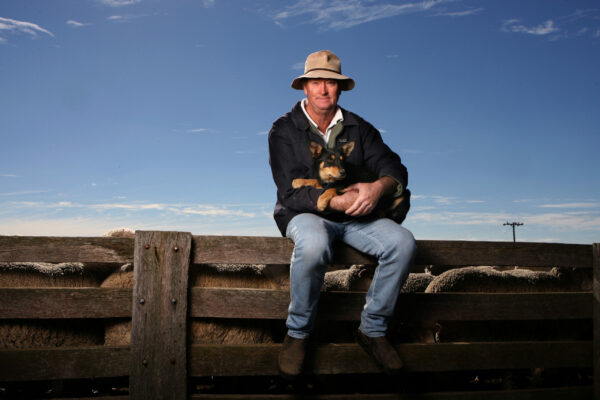Increasing efficiency and resilience of feed and lamb production

Colin Seis’ property, Winona in NSW is the location for a project to increase efficiency and resilience of feed and lamb production.
Winona, Colin Seis’ 840-hectare property, just north of Gulgong in New South Wales is the location for a project aimed at increasing efficiency and resilience of feed and lamb production using drought tolerant native perennial pastures over sown with forage species. Colin runs 4,000 merino sheep for wool, merino lamb and mutton production.
The Watershed Landcare Group is overseeing this project with Colin responsible for project delivery and implementation. They are one of three groups to receive a MLA Landcare Excellence in Sustainable Farming Grant. The other two groups are Murrumbidgee Landcare Inc. located in New South Wale’s Riverina area and Western District Pasture Technology Group in conjunction with Glenelg Hopkins Landcare Network in the Western District of Victoria.
The project on Colin’s property connects the important values of a commercial farm with extremely drought hardy and high value native perennial grassland species with greatly increased production efficiency, by utilising opportunity rainfall to over sow with forage species. Multiple forage species have been shown to increase soil carbon and thus increase the capacity for carbon sequestration (and the important benefits of increased soil water and nutrient holding capacity) while maintaining the high value perennial native pasture base.
An important decision making tool will be created to assess soil carbon linked to profitability and production benefits and risks, across a range of seasons. This will be useful for livestock farms in 300-600mm rainfall areas, wanting to improve fodder production resilient in drier periods using multipurpose and diverse sward allies for grazing and pasture cropping, the later to produce on-farm grain/hay feed reserves and supplementation for finishing stock.
The University of Sydney, Faculty of Agriculture will provide sampling and data analysis of pasture produced and soil carbon generated. Electronic data of live weight gain will be taken three times and analysed by the University of Sydney. This project will provide much needed scientific data and analysis to enable farmers to analyse this methodology, as well as the challenges and successes it may provide.
The grants, of up to $10,000 each, are administered by Landcare Australia as part of MLA’s (Meat and Livestock Australia’s) community focused Australian Good Meat initiative. This initiative highlights how Australia sets the standard for world-class industry practices through ongoing community engagement, including within areas of environmental sustainability, land, water, biodiversity and climate variability.



